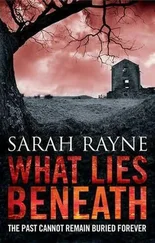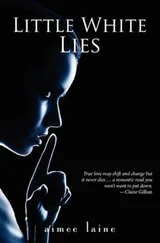We toured other villages looking for these parttime notaires’ études , one dusty window, the gold paint peeling off the hanging sign. We found more faded ruins and half the houses in these villages had an A Vendre sign nailed on the front door like a wreath for the dead. We peered through crusted windows into kitchens with stone sinks, post office calendars for 1968, black and yellow linoleum, straw chairs with half the legs gnawed off by woodworm. There was always a neighbour fussing over potted fuchsias round the step, sweeping our footprints away behind us, hanging the wet floor-cloth from a nail. Old women in housecoats and cardigans came out to tell us they didn’t know the price, or if they did they said four million old francs.
We bought survey maps and drove all day after cheap houses. We found them along dusty brown lanes which crossed courtyards and wound between barns and cider orchards and pasture. Hamlets where every house was made of mud and lay empty, the grey net curtains like dead eyes, dried up flies caught along their edges.
At some point we should’ve asked ourselves what we were doing, who we were, what we expected to become by slipping into skin shed by dead peasants. Until, one evening we drove out to Le Haut Bois, looking for the fermette à rénover we’d seen advertised in a window, with outbuildings, 4,964 square metres of land, pasture with pear trees, 85,000 francs. We saw a bicycle leaning against a statue of Our Lady in the hedgerow, a little man in blue overalls slashing the grass along the verge, flattening the buttercups and cowslips. Joy said we were looking for the place that was for sale. He scratched his head and looked at the nearest hovel sticking from the brambles and vines. That’s for sale, he said, and so is that, and that. Half of the commune was for sale. Everyone was dead.
—Do you want to buy a house?
—Yes, we said.
The first time we’d admitted it.
—You’re going to live here? he said.
—We do live here, Joy said.
By August we were lodging in the Grande Rue with Widow Cardonel while hesitating over signing the promise to buy Le Haut Bois. Madame Cardonel was so old her skin hung like a curtain. She dressed in black and put all her remaining strength into polishing cold metal, ringing out dishclothes and pouncing on infractions of the rules.
Our room was upstairs and faced the river. We had the big brass Cardonel marriage bed but she’d locked every drawer and cupboard, taken the candles from the Virgin’s votary and told us not to run any taps. She lived downstairs, sleeping in the front room. She rose at six, took a nap in the afternoon and went to bed at 9.30 like clockwork.
She called me le monsieur . My job from the outset was the fetching of water from the river in different coloured buckets. Blue for the washing-up, red for cooking, white for personal. Drinking water came from the supermarket. She allowed us one bath a week in the same water. One morning I eased the tap on in the upstairs bathroom to brush my teeth, but Madame Cardonel was banging on the ceiling with her cane before I’d even wet my toothbrush.
A nurse came once a week to give her a bath. I’d fetch one bucket and hoist it onto the bottled gas to warm, not boil. The nurse sponged her down in a galvanised trough in Madame’s bedroom. Joy asked her why she didn’t use eau de ville . The river is water, she said.
We cooked for ourselves, but Madame laid three places in the kitchen on the plastic tablecloth with its scenes of pots and pans. She’d use her hand like a snow plough on the table, chasing all the breadcrumbs into her palm when she’d finished her meal, licking up the crumbs till they were gone. And, when the milk was finished, she’d cut the box with scissors and scrape the milk dew off the insides into her cup. At night she never put the lights on, shuffling about with a little square bike torch she kept in a housecoat pocket.
Joy did the talking in French. I was still picking up words, like banknotes in the wind. I didn’t know which to start on, chasing one too long and letting the whole sentence blow away. This meant that Madame Cardonel stopped looking at me when she spoke. She’d tell Joy that the monsieur hadn’t fetched the water yet, or could the monsieur change the gas bottle. If she did address me she never waited till I processed what she’d said, she just snapped: comprend pas, hein, comprend pas l’monsieur . Every evening she nagged down a tumbler of apéritif maison and said: that’s another the Boche won’t get .
Sometimes the phone rang. It was rigged to the old bell from out the fire station so she could hear it. If we were in she’d say a man was coming at half-past five and we should wait in our room. It was business, she said. We’d listen to muffled voices coming up the stairwell through the closed kitchen door. Madame Cardonel chuffing down the steps out back with her keys, the unjailing of the cave door, locks, chain, padlocks. Five hundred bottles of Calvados the Germans didn’t get. Some of it was seventy years old in the bottle. She put the 350 francs she got for each bottle in a biscuit tin under her marriage girdles in the armoire .
According to her, every farm we looked at as a potential home was never any good. Each time she’d say the man’s mother was a collabo , she’d ‘knitted with the Germans’, and after Liberation the patriots went round the farms and shaved the hair off women like her. So when we told her we’d finally decided to buy Juliette Macé’s old place at Le Haut Bois she shook her head and said: huh, Aunay, he won’t want you there .
Monsieur Aunay came into the yard the day me and Joy moved into Le Haut Bois. It was September and the mud felt like putty and smelled like school clods off football boots. We arrived to find a pall of smoke in our neighbour Prodhomme’s field and his 15-year-old boy backing a hay trailer up to our front door for a second load. Prodhomme just waded into the house and slumped anything he could carry for the fire, its black swirling smoke and orange flames, all Madame Macé’s rag and bone sheething through the apple trees. We stopped them ransacking more, and Joy told them we’d bought the buildings and their contents. They were ashamed, that’s all. Prodhomme had waited twenty years to get in there and clear up. Wiping out the traces of generations of Lecoeur, Legrange and Macé with a ketchup of diesel and a few broken matches.
We began to clear the rubbish from the house ourselves, wearing masks against the dust and smell, and new blue boiler suits we’d bought from Bricomarché. Suddenly Monsieur Aunay was standing there, red checked shirt, blue work trousers, the back of his hands raked with bramble scratches. We thought he’d come to welcome us. Joy said bonjour monsieur very properly, even rolling her r’s and getting half the roll stuck in her throat. He ignored her and looked at me, said something I didn’t understand, but mentioned Madame Macé. I smiled stupidly and tried mustering the vocabulary to offer him a drink of cider from the old crusty bottle cooling in the rain butt. Then Joy’s grin changed shape and she rolled her eyes.
—What did ’e say? I said.
—It doesn’t matter, she said.
He spoke to her now, asked if she spoke French.
—Yes, she said.
He repeated what he’d said and walked off, put his white crash helmet on and went up the lane on his old Solex.
—Well? I said.
—He said we weren’t respecting the memory of Madame Macé.
Joy had been gone ten days when the police parked down on the lane below Le Haut Bois and walked up, tacking through the mud in shiny shoes. Gendarmes, Brigade de Briouze , it said on their van. It was 10 a.m. The taller one had tiny feet and carried the crime case. I made them coffee, just the warmed-up sips I’d poured back into the pot over the previous days. The room temperature was four degrees, the stove unlit. The case was opened and the pandore put on the latex gloves and powdered two glasses for fingerprints.
Читать дальше












